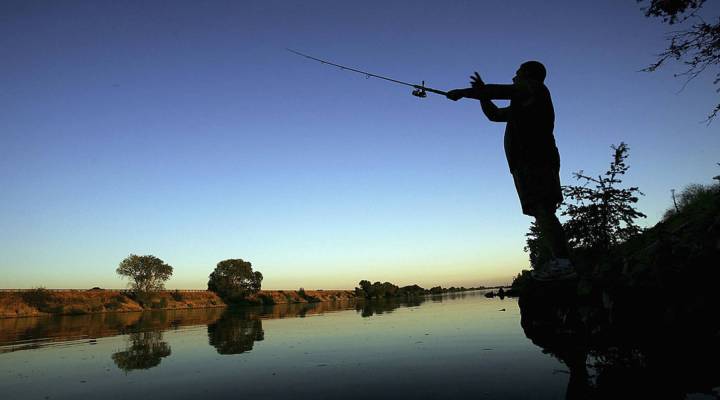
New law could make California fishing licenses more user friendly
New law could make California fishing licenses more user friendly

The number of people fishing for fun in California has decreased over the past 30-plus years. Fewer people buying a recreational fishing license means less money for California’s huge fish and wildlife agencies. A change to the fishing license system aims get more hooks in the water.
Jim Kraft and his 12-year-old son, Tyler, spent the weekend fishing at Lopez Lake on California’s central coast. Their annual fishing licenses run $47.01 apiece.
“And then we get to use it for two days and put it in our pocket and don’t use if for the rest of the year,” Kraft said. “So, that’s kind of the problem with amateurs like us.”
The Krafts don’t get much value because if they buy a license in June, it runs out in December.
This family, like a lot of Californians, goes camping and fishing in the summer. And they normally just pick up a license at a local marina.
| California fishermen, once blocked by conservationists, now work with them |
| A fisherman’s plan to feed the world and reduce climate change |
| How sustainable seafood can harm coastal communities |
Kim Sylvester, who started working at the Lopez Lake Marina in 1998, is the one who explains to people about the expiration dates.
“It’s always been that way,” Sylvester explained. “Everybody has complained about it because it’s not reasonable.”
This year, the state voted on a change. State Sen. Tom Berryhill wrote a bill to make a fishing license valid for 12 months from the time of purchase. So, if you buy your license on Memorial Day weekend, it’s valid until next year’s holiday. The idea was convenience and to boost jobs in outdoor tourism, since more people will theoretically fish if the license is good for when they want to go out on the water.
Chuck Bonham, director of the California Department of Fish and Wildlife, isn’t sold on the new law. He notes most states use the calendar year model, and he expects the change could mean people buy a license less often, which would mean his department would lose money. That would limit the amount of money it could use to breed more fish to stock lakes and rivers.
“If we take a 30 to 40 million dollars loss, we’re going to have to reduce our hatchery production by 500,000 or 800,000 fish a year,” Bonham said, reducing how many fish are put out for anglers. Fish and Wildlife’s budget also pays to clean up pollution and manage wildlife on state land.
Nathan Garcia grew up on Lopez Lake and fishes whenever he can. He knows a lot of people who just roll the dice.
“I know countless people that fish every day without a license,” Garcia said.
That’s exactly what Fish and Wildlife wants to avoid. By making fishing licenses valid summer to summer, when most people go fishing, more anglers are also likely to fish within the law.
There’s a lot happening in the world. Through it all, Marketplace is here for you.
You rely on Marketplace to break down the world’s events and tell you how it affects you in a fact-based, approachable way. We rely on your financial support to keep making that possible.
Your donation today powers the independent journalism that you rely on. For just $5/month, you can help sustain Marketplace so we can keep reporting on the things that matter to you.












